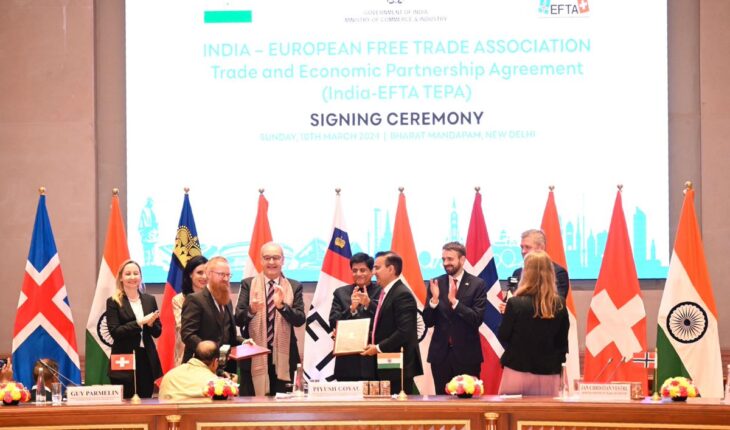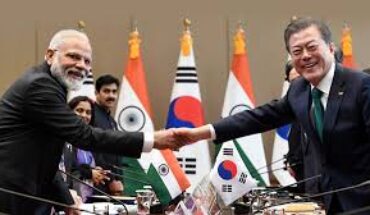India’s recent signing of the Trade and Economic Partnership Agreement (TEPA) with the European Free Trade Association (EFTA) countries – Iceland, Liechtenstein, Norway, and Switzerland – marks a significant pivot in its trade policy direction. This long-awaited pact, initiated in 2008 but stalled until now, opens a new chapter in India’s economic diplomacy, promising enhanced market access for Indian services and professionals in Europe.
The agreement, which aims to facilitate $100 billion in foreign direct investment and create a million jobs in India over the next 15 years, is a testament to the country’s renewed focus on leveraging trade for economic growth. Beyond the economic metrics, the deal is poised to bring tangible benefits to Indian consumers, including access to cheaper wines and chocolates, and to producers through more affordable machinery. The nuanced approach of linking tariff cuts to investment inflows underscores a strategic patience, with the full fruits of this agreement expected to be assessed two decades hence.
The swift conclusion of the EFTA deal is particularly commendable. It not only reflects India’s agility in trade negotiations but also its evolving stance on international trade agreements. This shift is evident when juxtaposed with India’s recent trade history, including its exit from the Regional Comprehensive Economic Partnership (RCEP) and its cautious engagement with other potential trade partners.
Moreover, the EFTA agreement’s symbolic value cannot be overstated. It signals India’s departure from its previously protectionist trade policies at a time when global trends are veering towards protectionism. The inclusion of non-trade issues such as labor rights, environmental concerns, and gender equality in the agreement aligns India with global best practices and addresses potential concerns of key allies like the European Union. In essence, the TEPA with EFTA countries is more than just a trade deal; it’s a strategic maneuver that positions India as a proactive, open, and responsible player on the global economic stage.






